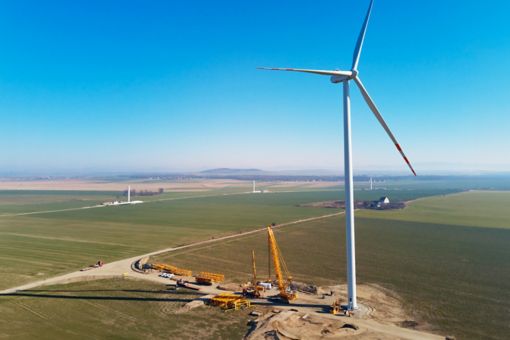Climate and nature risks are financial risks. Climate change and biodiversity depletion are among the most pressing issues facing the world today — triggering economic transformation, driving fundamental business model change, and leading to a rethink of what business as usual looks like.
The journey to a low-carbon future starts with setting strong, science-based emissions reduction targets and is brought to life through robust transition plans to decarbonize business operations, assets and entire value chains. Boards are under significant pressure to address environmental issues, and businesses must grasp the implications of climate and nature risks and opportunities – both on and as an output of their business activities – as they seek to improve climate-resilience and secure a nature-positive future for all.
Considerations for your leadership team
- How are you comprehensively assessing your climate and nature risks to understand potential impacts on your operations, supply chains, and financial performance?
- Have you assessed the sources of and quantified your emissions? Have you established a carbon baseline and set emission reduction targets?
- Have you developed a comprehensive climate transition plan that outlines your roadmap for transitioning to a low-carbon and resilient future? Does this plan include engagement across your full supply chain to work with vendors and suppliers to reduce emissions and address climate risks?
- How do you communicate your climate risk assessments, nature risk evaluations, and asset-level decarbonization progress to internal and external stakeholders?
- How are you ensuring compliance with climate and nature reporting standards, disclosures and regulations?
- What adaptation and resilience strategies and investments have you considered to address potential physical risks from climate change and nature loss on your business operations?
KPMG’s Decarbonization Hub
Leading with deep climate and infrastructure experience and cross-functional industry insights, KPMG’s Decarbonization Hub helps organizations streamline the implementation of their decarbonization objectives. Our team focuses on navigating policy and market uncertainties, enhancing investment decision-making and governance, fostering innovation, and facilitating operations transformation.
The Decarbonization Hub delivers a comprehensive suite of implementation services to advise organizations on the strategies, technologies, tools and methods needed to transition to a low-carbon future.
KPMG offers a strategy-led approach to climate risk, with expertise in readiness reviews and board engagement capabilities for climate action. Through the use of its proprietary ClimateIQ multi-industry risk management tool to help firms assess both physical and transitional climate risks, KPMG helps firms understand and project the impact of climate change on their business.
How we can help our clients
- Assessing climate risk and providing scenario analysis: Supporting our clients to identify, quantify and manage their climate risks and opportunities. Using our proprietary technology tools and models, including Climate IQ, we can help organizations assess the physical risks to business operations and assets and transition risks and opportunities from shifting economic trends.
- Managing natural capital and biodiversity risks and opportunities: Focusing on best-practice approaches (e.g., TNFD requirements, SBTN initiative, ISSB guidelines, CDP Forests rating questionnaire, etc.), we help our clients to identify, assess and manage their nature-related risks and opportunities as well as to develop their nature strategy.
- Developing corporate decarbonization pathways: Helping clients assess sources of emissions and identify viable pathways for remission reduction that are aligned with corporate strategy and emissions targets, and address external pressures and opportunities, including evaluating the technical, economic, and environmental viability of potential decarbonization solutions.
- Complying with climate policies and accessing incentives: Our team will analyze policies and regulations that support and promote asset-level decarbonization efforts, including managing regulatory pathways and optimizing financial and tax incentives for decarbonization initiatives.
- Low-carbon deals and corporate financing: We can help structure and arrange financing for decarbonization projects and investments, including developing funding and financing strategies and negotiating deals with investors and other parties.
- Deploying and implementing decarbonization solutions: Providing clients with full-lifecycle support for developing and integrating decarbonization solutions, including deploying and integrating new technologies, infrastructure and operating models.
- Enabling effective reporting: Helping clients report on the progress of their decarbonization, climate and nature initiatives in alignment with various ESG reporting standards (ISSB, ESRS, US SEC) and frameworks (TCFD, TNFD, GRI, CDP and UN SDGs) including framework selection guidance, gap assessments, and implementation support.
KPMG in Canada’s cross-functional decarbonization, climate and nature teams of accountants, business consultants, engineers, and data and technology professionals bring together deep industry insights, technical subject matter expertise, established services, innovative technologies and carefully selected alliances to help our clients realize their environmental ambitions – for their businesses, people and the planet.
Insights
Want to receive insights, events and more to your inbox?
Related services
ESG resources
Frequently asked questions (FAQs)
Connect with one of our Climate change and decarbonization leaders.
Greenhouse Gas (GHG) Emissions are the emission into the earth’s atmosphere of any GHG’s that contribute to the greenhouse effect, causing climate change, especially carbon dioxide from burning fossil fuels (coal, oil & natural gas). Reported by Scope 1 (direct combustion - e.g. gas), Scope 2 (indirect e.g. electricity) and Scope 3 (emissions within a company’s value chain such as use of sold product or travel).
A carbon footprint is the total amount of GHG emissions caused by an organization (or product, place, etc). Expressed as carbon dioxide equivalent (CO2e).
Refers to a state in which the greenhouse gases going into the atmosphere are balanced by removal out of the atmosphere. Many organizations are now making net-zero pledges, including KPMG.
Refers to the removal and permanent storage of atmospheric carbon to counterbalance the effect of releasing CO2 into the atmosphere through activities (e.g., carbon sequestration or innovative technology).
The Paris Agreement is the first-ever universal, legally binding global climate change agreement, adopted at the Paris climate conference (COP21) in 2015. The Paris Agreement’s central aim is to limit global warming to well below 2°C and pursuing efforts to limit it to 1.5°C. As of the end of 2020, 189 Parties out of 197 Parties to the Convention have ratified the Paris Agreement.
The CDP (formerly the Carbon Disclosure Project) is a not-for-profit charity that runs the global disclosure system for investors, companies, cities, states and regions to manage their environmental impacts. CDP scores name the world’s cities and companies leading on environmental performance.
Greenhouse gas (GHG) footprint development assists organizations in managing GHG risks and identifying reduction opportunities. KPMG in Canada can help clients set a net zero ambition, assess impacts of climate change on capital programs, and model climate risks.
The top six areas of climate change risk facing Canada include physical infrastructure, coastal communities, northern communities, human health and wellness, ecosystems, fisheries. KPMG in Canada climate risk management and decarbonization can help clients understand and address climate change, prepare for a low-carbon future and reduce carbon emissions.
Connect with us
Stay up to date with what matters to you
Gain access to personalized content based on your interests by signing up today
Connect with us
- Find office locations kpmg.findOfficeLocations
- kpmg.emailUs
- Social media @ KPMG kpmg.socialMedia

















